
Leukemia treatment in india : A New Era of Hope
30 Nov, 2023
 Healthtrip Team
Healthtrip TeamLeukemia is a type of cancer that affects the blood and bone marrow. It occurs when there is an abnormal increase in the number of white blood cells, which are responsible for fighting infections in the body. While leukemia can be a life-threatening disease, advancements in medical science and technology have made it more manageable and treatable than ever before.
In India, there are several world-class healthcare facilities and expert oncologists who specialize in leukemia treatment. This comprehensive guide will provide you with an overview of leukemia treatment in India, including the available treatment options, top hospitals etc.
Most popular procedures in India
Leukemia:
Leukemia is a type of cancer that affects the blood-forming tissues in the body, particularly the bone marrow and blood. It is characterized by the uncontrolled growth of abnormal white blood cells, which can interfere with the normal functioning of the immune system and the production of other blood cells like red blood cells and platelets. There are four main types of leukemia, each with its distinct characteristics:
Wellness Treatments
Give yourself the time to relax
Lowest Prices Guaranteed!

Lowest Prices Guaranteed!
1. Acute Lymphoblastic Leukemia (ALL):
- ALL is the most common type of leukemia in children, but it can also affect adults.
- It originates in the bone marrow and affects immature lymphoid cells (lymphoblasts).
- ALL progresses rapidly, and without prompt treatment, it can be life-threatening.
- Symptoms may include fatigue, easy bruising, frequent infections, bone pain, and swollen lymph nodes.
2. Acute Myeloid Leukemia (AML):
- AML primarily affects adults, but it can also occur in children.
- It originates in the bone marrow and affects myeloid cells, which develop into red blood cells, white blood cells, and platelets.
- AML progresses rapidly and can be aggressive.
- Symptoms may include fatigue, pale skin, easy bleeding or bruising, and recurrent infections.
3. Chronic Lymphocytic Leukemia (CLL):
- CLL is more common in adults, especially those over the age of 60.
- It develops slowly, with the abnormal white blood cells being mature but not functioning properly.
- CLL may not cause symptoms in its early stages and is often diagnosed incidentally through routine blood tests.
- When symptoms do occur, they may include enlarged lymph nodes, fatigue, weight loss, and frequent infections.
4. Chronic Myeloid Leukemia (CML):
- CML primarily affects adults and is characterized by the overproduction of mature myeloid cells.
- It is often associated with a genetic mutation called the Philadelphia chromosome.
- CML progresses more slowly than acute leukemias and typically has three phases: chronic phase, accelerated phase, and blast phase.
- Symptoms in the chronic phase may include fatigue, abdominal discomfort, and an enlarged spleen.
Leukemia Treatment Options in India:
In India a wide range of treatment options are there for leukemia patients. These treatments may include:
1. Chemotherapy
Chemotherapy is a form of cancer treatment that uses one or more anti-cancer drugs as part of a standardized chemotherapy regimen. Its primary purpose is to kill or slow the growth of cancer cells, particularly those that multiply rapidly, like leukemia cells. Chemotherapy is often the first-line treatment for many types of leukemia. It can be used before other treatments to shrink a tumor, after other treatments to destroy remaining cancer cells, or as a sole treatment.
Process of Chemotherapy
1. Assessment and Planning: Before starting chemotherapy, the patient undergoes a thorough medical assessment. This includes blood tests, imaging tests, and sometimes biopsies to determine the type and stage of leukemia.
2. Regimen Selection: The oncologist selects a chemotherapy regimen based on the leukemia type, patient's health, and treatment goals. The regimen specifies which drugs will be used, their dosages, and the treatment schedule.
3. Administration Routes:
- Intravenous (IV) Chemotherapy: The most common method. Drugs are given directly into a vein through a cannula (a thin tube), a central line (a long, thin tube inserted into a large vein), or a PICC line (inserted into a vein in the arm).
- Oral Chemotherapy: In pill or liquid form, taken by mouth. The patient must follow a strict schedule to maintain the drug's effectiveness.
4. Treatment Cycles: Chemotherapy is typically given in cycles, which may last a few weeks. Each cycle includes a treatment period followed by a rest period. The rest period allows the patient's body to recover and produce new healthy cells.
5. Monitoring: During treatment, the patient's response to the chemotherapy is closely monitored through regular blood tests, physical exams, and sometimes imaging tests. This helps the medical team adjust the treatment if necessary.
6. Supportive Care: Side effect management is a crucial part of the chemotherapy process. This may include medications to reduce nausea, pain management, and nutritional support.
2. Radiation Therapy
Radiation therapy uses high-energy particles or waves, such as x-rays, gamma rays, electron beams, or protons, to destroy or damage cancer cells. It's used to kill cancer cells and shrink tumors. In leukemia, it might be used to prepare for a stem cell transplant or to treat leukemia that's spread to the brain or other organs. Radiation therapy is typically used in combination with chemotherapy, before a stem cell transplant, or when leukemia cells are found in a specific area.
Process of Radiation Therapy
1. Consultation and Planning: The process begins with a detailed consultation. The patient may undergo a series of imaging tests like CT scans or MRIs to determine the precise location for radiation.
2. Simulation: A simulation session is conducted to plan the radiation. The patient's position is adjusted for maximum precision, and sometimes immobilization devices are used to keep the patient still during treatment.
3. Marking the Treatment Area: The radiation therapist marks the area on the patient's body where the radiation beams will be directed. These marks ensure accuracy in each session.
4. Customizing Treatment: Based on imaging results, the radiation oncologist develops a treatment plan. This involves calculating the radiation dose and determining how it will be delivered to target the leukemia cells effectively while minimizing exposure to healthy tissue.
5. Radiation Sessions: Treatment sessions are typically short, often only a few minutes, and are done on an outpatient basis. The total number of sessions depends on the type and stage of leukemia but usually occurs over several weeks.
6. Treatment Delivery: During each session, the radiation machine may move around the patient to deliver radiation from different angles. The patient won’t feel the radiation, but it's crucial to remain still during treatment.
7. Monitoring and Adjustment: The patient’s response to radiation therapy is regularly evaluated through follow-up appointments. The treatment plan may be adjusted based on this ongoing assessment.
8. Post-Treatment Care: After completing radiation therapy, follow-up care is essential to monitor recovery and manage any lingering side effects.
3. Stem Cell Transplantation
This is a procedure that replaces unhealthy bone marrow with healthy bone marrow stem cells. It's used when leukemia treatments have destroyed the patient's bone marrow or when high doses of chemotherapy or radiation are needed. It's often considered for younger patients or those in remission after initial treatment, and whose leukemia is at a high risk of returning.
Process
1. Evaluation and Donor Matching:
- Evaluation: The patient undergoes a comprehensive medical evaluation to assess their suitability for a transplant.
- Donor Matching: A compatible donor is identified. The donor can be the patient themselves (autologous transplant) or another person (allogeneic transplant). Matching is usually based on human leukocyte antigen (HLA) typing.
2. Harvesting Stem Cells:
- Autologous: Stem cells are collected from the patient’s own blood or bone marrow.
- Allogeneic: Cells are collected from the donor’s blood or bone marrow.
3. Conditioning Regimen: Before the transplant, the patient receives a conditioning regimen, which usually involves high-dose chemotherapy or radiation. This serves to destroy cancerous cells and make room in the bone marrow for new stem cells.
4. Transplantation: The harvested stem cells are infused into the patient’s bloodstream. This procedure is similar to a blood transfusion and is usually done through a central venous catheter.
5. Engraftment: The stem cells travel to the bone marrow and begin to produce new blood cells. This process, known as engraftment, can take several weeks.
6. Post-Transplant Care: The patient is closely monitored for complications, such as infections or graft-versus-host disease (in allogeneic transplants). They may receive medications to prevent or treat these complications.
7. Recovery and Follow-Up: Recovery can take several months to a year. The patient will have regular follow-up appointments to monitor their health and the success of the transplant.
4. Targeted Therapy
Targeted therapy drugs work by targeting specific genes, proteins, or the tissue environment that contributes to cancer's growth and survival. These drugs are designed to interfere with leukemia cells' ability to grow and divide, or trigger apoptosis (cell death). Used for certain types of leukemia that have specific genetic mutations. It's often prescribed for patients who cannot tolerate the side effects of chemotherapy.
Process:
1. Molecular Testing: Before starting targeted therapy, tests are conducted to identify specific genes, proteins, or other factors in the cancer cells that can be targeted by the drugs.
2. Selection of Therapy: Based on the test results, an appropriate targeted therapy drug is selected. These drugs are often pills taken orally.
3. Treatment Administration: The patient follows a treatment schedule, which might be daily, weekly, or another frequency. Adherence to the regimen is crucial for the therapy's effectiveness.
4. Monitoring Response: The patient is regularly monitored to assess the cancer’s response to the therapy. This includes blood tests, physical exams, and imaging studies.
5. Adjusting Treatment: Depending on the response and any side effects experienced, the treatment may be adjusted. This could include changing the dosage or switching to a different targeted therapy.
5. Immunotherapy
Immunotherapy treatments help the immune system recognize and fight cancer cells. It can be more specific than chemotherapy, targeting only the cancer cells while sparing healthy cells. Used in certain types of leukemia, especially when standard treatments are not effective.
Process:
1. Assessment and Planning: Similar to other cancer treatments, immunotherapy starts with a thorough assessment of the patient's health and the specifics of their leukemia.
2. Selecting the Type of Immunotherapy: There are different types of immunotherapy, such as checkpoint inhibitors, CAR T-cell therapy, or monoclonal antibodies. The choice depends on the type of leukemia and other individual factors.
3. Treatment Administration:
- Infusion: Many immunotherapies are given through an IV infusion, although some may be administered orally.
- CAR T-cell Therapy: For this type, the patient's T-cells are collected, genetically modified in a laboratory to target cancer cells, and then infused back into the patient.
4. Monitoring and Side Effect Management: The patient's response to treatment is closely monitored. Immunotherapy can cause unique side effects, and managing these is a key part of the treatment process.
5. Ongoing Evaluation and Adjustment: Treatment effectiveness is continuously evaluated, and adjustments are made as necessary, which might include dosage changes or switching to a different type of immunotherapy.
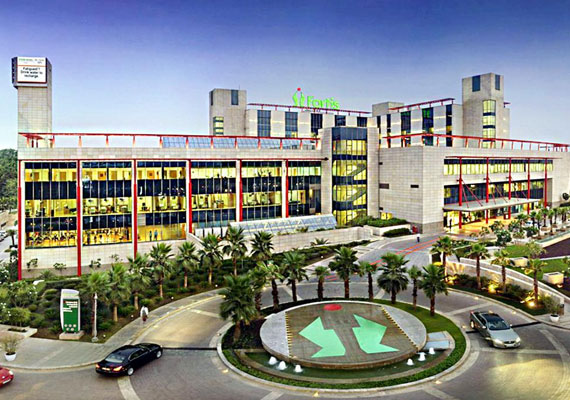
- Location: Sector - 44, Opposite HUDA City Centre, Gurgaon, Haryana - 122002, India
- Fortis Memorial Research Institute (FMRI) is a multi-super specialty, quaternary care hospital.
- It boasts an international faculty, reputed clinicians, super-sub-specialists, and specialty nurses.
- The hospital is known for utilizing cutting-edge technology to provide advanced medical care.
- FMRI aims to be the 'Mecca of Healthcare' for Asia Pacific and beyond.
- The hospital is situated on a spacious 11-acre campus and offers 1000 beds.
- It is often referred to as the 'Next Generation Hospital' and is built on the pillars of Talent, Technology, Infrastructure, and Service.
- FMRI has undergone a thorough on-site review of the quality and safety of care provided, and it is committed to continuously meeting rigorous international standards.
- FMRI is unmatched in the fields of Neurosciences, Oncology, Renal Sciences, Orthopedics, Cardiac Sciences, Obstetrics, and Gynecology.
- It has solidified its position as one of the top hospitals in Gurgaon by leveraging advanced technology and top clinicians to deliver high-quality healthcare.
- Fortis Memorial Research Institute is a flagship hospital of Fortis Healthcare, one of the leading healthcare providers in the country.
- Fortis Memorial Research Institute in Gurgaon is known for its exceptional healthcare services, advanced technology, and a wide range of medical specialties. It is committed to providing top-notch medical care and adhering to international standards of quality and safety.
2. Kokilaben Dhirubhai Ambani Hospital, Mumbai:
- Rao Saheb, Achutrao Patwardhan Marg, Four Bungalows, Andheri West, Mumbai, Maharashtra 400053
- The hospital has over 410 doctors from all departments and has performed 211 liver transplants.
- It is the only hospital in Mumbai with all 4 coveted accreditations.
- The hospital has 12,298+ complex cancer surgeries and 1,776+ robotic surgeries to its credit.
- The hospital provides complete treatments and surgeries for all kinds of diseases.
- The hospital has the first 3-room intra-operative MRI suite (IMRIS) in Asia.
- The hospital has Asia’s first EDGE Radiosurgery system from Varian Medical Systems.
- The hospital has India’s 1st Spine Surgery Suite featuring the O-arm.
- The hospital has a 750-bed multi-speciality facility.
- The hospital has boasted of many firsts not only in India but also in Asia.
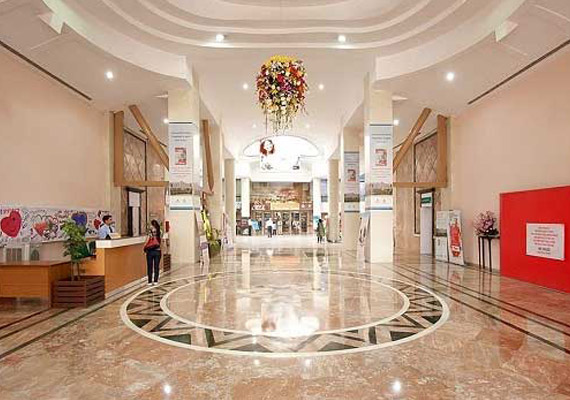
- Location: Sarita Vihar, Delhi-Mathura Road, New Delhi - 110076, India.
- Bed Capacity: 710 beds.
- Multi-specialty tertiary acute care hospital.
- Infrastructure: Spread over 15 acres with over 600,000 square feet of built-up area.
- Affiliation: Flagship hospital of the Apollo Hospitals Group, symbolizing clinical excellence.
- Clinical Excellence:Focus: Aims for top clinical outcomes, especially for complex diseases.
- Staff: Employs rigorously credentialed consultants and skilled healthcare staff.
- Development: Regular staff training and education to stay abreast of medical advancements.
- Advanced Technologies:
- Equipment: Includes PET-MR, PET-CT, Da Vinci Robotic Surgery System, BrainLab Navigation System, Portable CT Scanner, NovalisTx, Tilting MRI, Cobalt based HDR Brachytherapy, DSA Lab, Hyperbaric Chamber, Fibroscan, Endosonography, 3 Tesla MRI, 128 Slice CT scanner.
- Accreditations:Quality Standards: First in India with JCI accreditation in 2005; reaccredited in 2008 and 2011.
- Laboratories: NABL accredited clinical labs and advanced blood bank.
Finest doctors for Leukemia treatment in india

- Clinical Lead - Centre for Bone Marrow Transplant and Cellular Therapies, Senior Consultant Pediatric Hematology, Oncology, and Immunology.
- Experience: Over 15 years of medical experience.
- Consultation Location: Indraprastha Apollo Hospital, India.
- Specializations:
- Clinical Lead in Bone Marrow Transplants and Cellular Therapies.
- Senior Consultant in Pediatric Hematology, Oncology, and Immunology.
- Notable Achievements:
- Pioneered the first haploidentical bone marrow transplant for sickle cell disease in India.
- Conducted the first invitro TCR alpha beta CD 19 depleted haploidentical BMT in a 5-month-old baby with severe combined immunodeficiency.
- Accomplished close to 700 transplants for various diseases, collaborating with a dedicated team.
Dr. Gaurav Kharya is dedicated to ensuring that no child in need of treatment for cancer, immunological diseases, or bone marrow transplant is denied care due to financial constraints. Dr. Gaurav Kharya's extensive medical expertise, groundbreaking achievements, and unwavering commitment to providing healthcare access make him a distinguished figure in the field of pediatric hematology, oncology, and immunology.
- Blood Disorders and Bone Marrow Transplant
- Consults at: Fortis Memorial Research Institute, Gurgaon, and Fortis Hospital, Noida
- Achievements: Pioneered stem cell transplant in multiple sclerosis in India.
- Experience: Over 15 years of medical expertise.
- Transplants: Successfully completed 400+ transplants.
- Vision: Established an integrated center of excellence in Hematology and Stem Cell Transplantation at Fortis Memorial Research Institute.
- Recognition: Renowned hematologist in Delhi and Gurgaon.
- Specialties: Benign Hematology, Hemato-oncology, Pediatric Hemato-oncology, Transplants (including haploidentical), Hematopathology, Molecular Hematology.
3.Dr. Nivedita Dhingra

- Consultation Location: Max Super Speciality Hospital, Patparganj, India
- Senior Consultant - Medical Oncology (Hematology, Hemato-Oncology, BMT)
- Experience: Over 9 years of medical practice
- MBBS from Maulana Azad Medical College (MAMC), New Delhi.
- MD from University College of Medical Sciences (UCMS), New Delhi.
- Fellowship of National Board in Pediatric Hemato-Oncology from Sir Ganga Ram Hospital, New Delhi.
- DM Clinical Hematology from All India Institute of Medical Sciences (AIIMS), New Delhi.
- Expertise in Bone Marrow Transplant, Cancer Care, Hematology Oncology, and Medical Oncology.
- Keen interest in treating Leukemia, Lymphomas, Myeloproliferative Neoplasms, and more.:
- Worked as a Senior Registrar in the Department of Clinical Hematology at AIIMS, New Delhi.
- Academic Registrar in the same department.
- Consultant in Hematology-Oncology/Bone Marrow Transplant at Jaypee Hospital, Noida, before joining Max Super Speciality Hospital, Vaishali.
- Notable Awards:
- 2nd prize in Young Hematologist Orientation Program (YHOP) Quiz SGPGI 2017.
- Ravi K. Jerath Award for the best FNB trainee in Pediatric Hemato-Oncology.
- Dr. V Balagopal Raju Gold Medal for the best research paper in PEDICON 2009.
- Shri Ram Vidyawanti Kakkar Memorial Gold Medal in ENT.
- Presented research work at international conferences, including ESID in Florence, Italy, and SIOP in London, PHOCON.
- Published research in national and international journals and textbooks of hematology.
- Serves as a reviewer for Indian Pediatrics and JPHO.
Dr. Nivedita Dhingra's educational background and accolades showcase her dedication to academic excellence and her contributions to the field of hematology and oncology. Dr. Nivedita Dhingra's exceptional qualifications, specialized expertise, and recognition in the field of hematology and oncology underline her dedication to advancing medical knowledge and providing high-quality care to patients.
India has made remarkable strides in leukemia treatment, emerging as a notable destination for comprehensive care. The country's advanced healthcare infrastructure, combined with the expertise of seasoned oncologists and a diverse array of treatment modalities, offers promising prospects for leukemia patients.
Essential to this journey is the personalized consultation with healthcare professionals, ensuring that each treatment plan is optimally tailored to the individual's needs while also considering the financial aspects. This holistic approach to leukemia care in India not only enhances the likelihood of successful outcomes but also significantly improves the quality of life for those affected.
Most popular wellness packages
Related Blogs

Unparalleled Medical Care at VPS Lakeshore Hospital, Kerala
Get the best medical treatment at VPS Lakeshore Hospital, Kerala
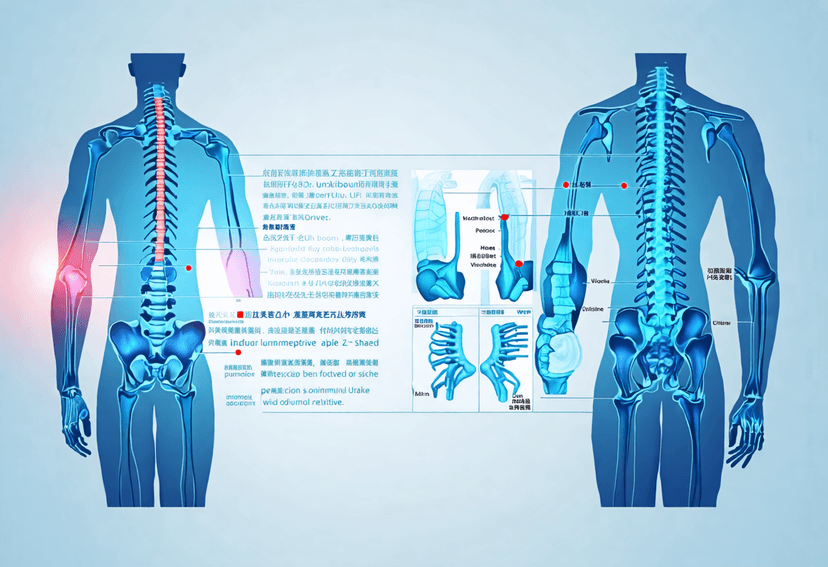
Why Choose Transforaminal Lumbar Interbody Fusion (TLIF) with Healthtrip
Learn why you should choose Healthtrip for your Transforaminal Lumbar
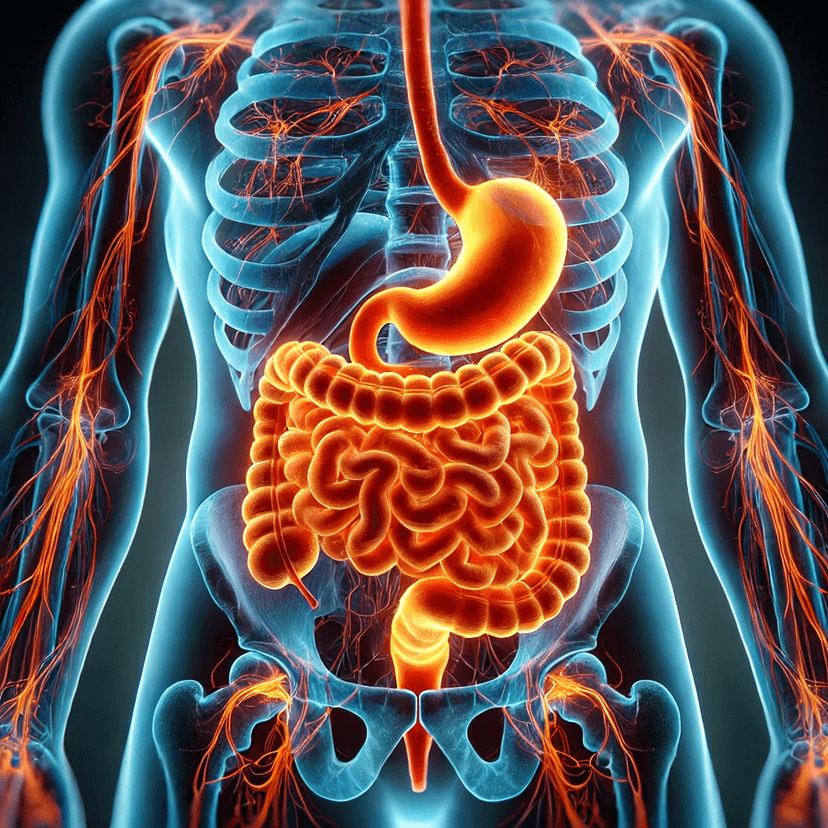
A Comprehensive Guide to Crohn's Disease Treatment in India
Is Crohn's disease making life difficult for you or someone

A Comprehensive guide on Myomectomy Surgery in India
Ladies, are fibroids wreaking havoc on your life? Dealing with

A Comprehensive Guide to Autism Treatment in India
Have questions about autism and the specialized treatments available in
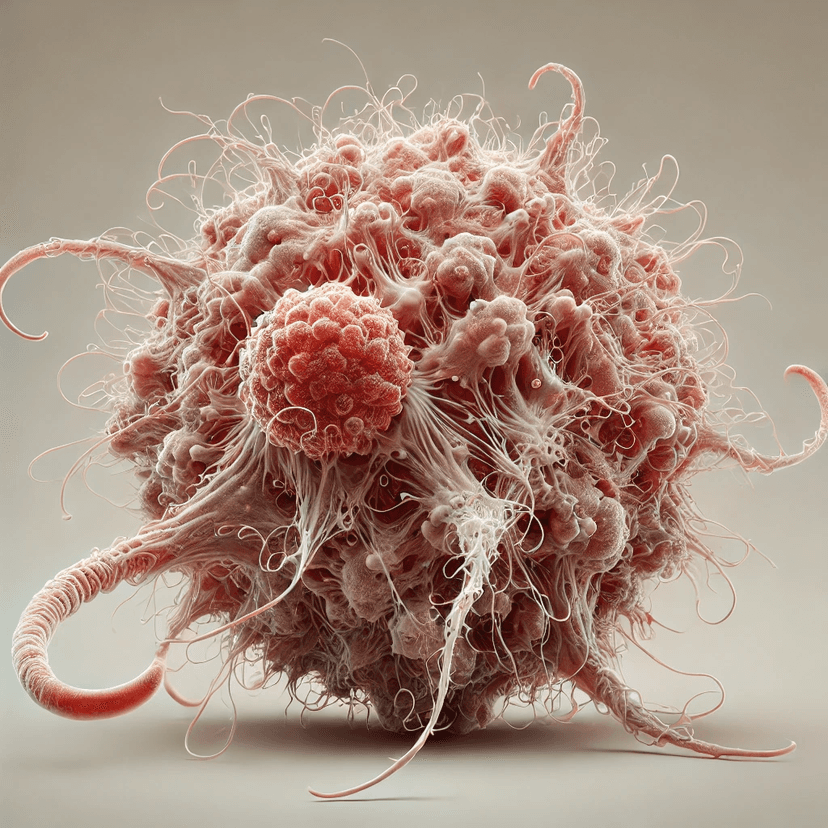
A Comprehensive guide to Liver Cancer Treatment in India
Do you have questions about liver cancer treatment options in











